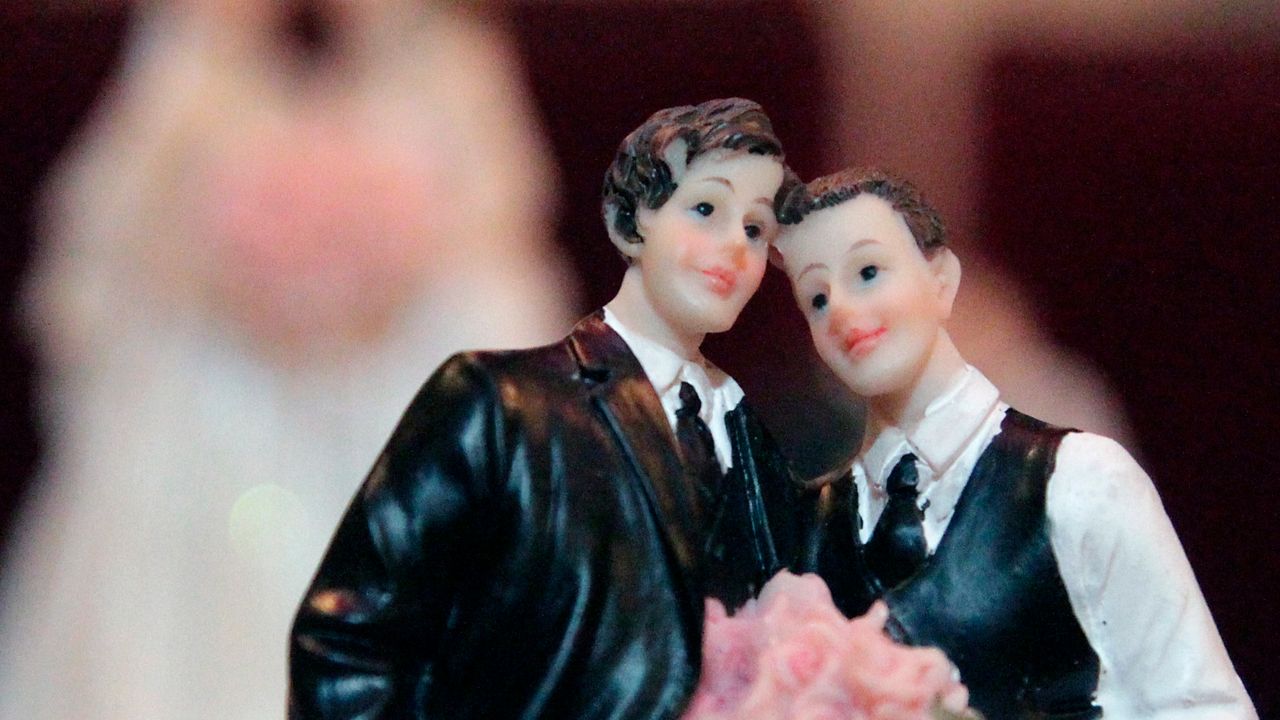Sign up for The Agenda, Them’s news and politics newsletter, delivered Thursdays.
Judges in Texas may refuse to marry same-sex couples if doing so would violate their “sincerely held religious beliefs,” according to a new judicial rule quietly enacted by the Texas Supreme Court last week.
On October 24, the high court issued an order modifying the Texas Code of Judicial Conduct, which lays out rules for judges in the state. The Code states that a judge’s “extra-judicial activities” should not “cast reasonable doubt on the judge’s capacity to act impartially as a judge.” But the Court’s newly adopted comment creates an exception to that rule specifically for marriage rights, stating that “[i]t is not a violation of these canons for a judge to publicly refrain from performing a wedding ceremony based upon a sincerely held religious belief.” The comment effectively protects Texas judges from official sanctions if they say their religion prohibits them from marrying a same-sex couple.
The new rule could apply to any marriage, but comes in the context of a series of challenges to same-sex marriage in Texas over the past decade, as KERA reported this week. The change was made as a result of a lawsuit filed by Jack County judge Brian Umphress, who is challenging the State Commission on Judicial Conduct’s decision to sanction another judge, Dianne Hensley, in 2019 for her refusal to marry same-sex couples. That same year, Texas Gov. Greg Abbott withdrew two nominees to the Commission, allegedly because they voted to issue the warning against Hensley; the Commission withdrew Hensley’s sanction last year, after she sued the body alleging they had violated her freedom of religion.
Umphress argued that he could face similar sanctions for campaigning against same-sex marriage, eventually convincing the Fifth Circuit Court of Appeals to ask the state Supreme Court to weigh in on the issue, according to Chron. The high court is currently led by Justice Jimmy Blacklock, who has been highly sympathetic to Hensley, writing in an opinion last year that same-sex couples could simply find a different judge to marry them while Hensley herself “went back to work, her Christian conscience clean, her knees bent only to her God. Sounds like a win-win.”
The First Liberty Institute, an anti-LGBTQ+ “religious liberty” group that represented Hensley, declared victory as a result of the high court’s rules change. “Now going forward, every judge in Texas will enjoy the freedom Judge Hensley has fought so hard for in her case,” the organization’s executive general counsel Hiram Sasser told KERA.

